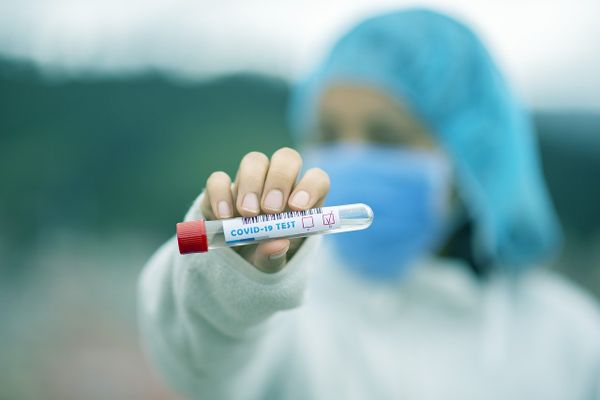FBI Warns Consumers about COVID-19 Antibody Testing Scams

Lockdown measures may be easing across the world, but we are not out of the woods yet. Scammers continue to leverage the coronavirus crisis by recycling old ruses or devising new schemes to fool unsuspecting victims.
Governments and police are on full alert as coronavirus-related scams plague the digital landscape, defrauding the population of millions.
Last week, the FBI issued a warning about a new breed of scam related to antibody testing for the virus. According to the agency, fraudsters have started marketing unapproved antibody tests that provide more than just false results to potential customers.
“In response to the vast number of COVID-19 cases, and in an effort to return to a normal economy as soon as possible, researchers have been encouraged to devise testing methods that can be quickly and easily deployed to test large numbers of individuals for COVID-19 antibodies,” the FBI said. “However, not all COVID-19 antibody tests have been approved by the U.S. Food and Drug Administration (FDA), and their efficacy has not been determined.”
Individuals caught in this ruse expose personal information, as bad actors will try to steal sensitive data such as names, date of birth, Social Security Numbers, and other personal health data that could lead to a bad case of identity theft and fraud.
The law enforcement agency also provided a list of common indicators of such swindles, including:
• The FDA “approved” antibody test cannot be verified
• Ads for tests are pushed through popular social media platforms, email, phone or other unsolicited channels
• Vendors offer “free” COVID-19 antibody tests or incentives for undergoing testing
• Individuals contact you in person, by phone or via email claiming that government officials require you to take a COVID-19 antibody test
• Practitioners claim to perform antibody tests for cash
What should you do if such individuals contact you? The FBI recommends checking the FDA website for the updated list of approved COVID-19 antibody tests and testing companies, and use a known laboratory vetted by your health insurance company.
If you are required to share any personal or health information during testing, make sure you are dealing with trusted medical professionals. Follow CDC recommendations or guidance, and check your medical bills for any unusual claims.
tags
Author
Alina is a history buff passionate about cybersecurity and anything sci-fi, advocating Bitdefender technologies and solutions. She spends most of her time between her two feline friends and traveling.
View all postsRight now Top posts
How to Protect Your WhatsApp from Hackers and Scammers – 8 Key Settings and Best Practices
April 03, 2025
Outpacing Cyberthreats: Bitdefender Together with Scuderia Ferrari HP in 2025
March 12, 2025
Streamjacking Scams On YouTube Leverage CS2 Pro Player Championships to Defraud Gamers
February 20, 2025
How to Identify and Protect Yourself from Gaming Laptop Scams
February 11, 2025
FOLLOW US ON SOCIAL MEDIA
You might also like
Bookmarks








